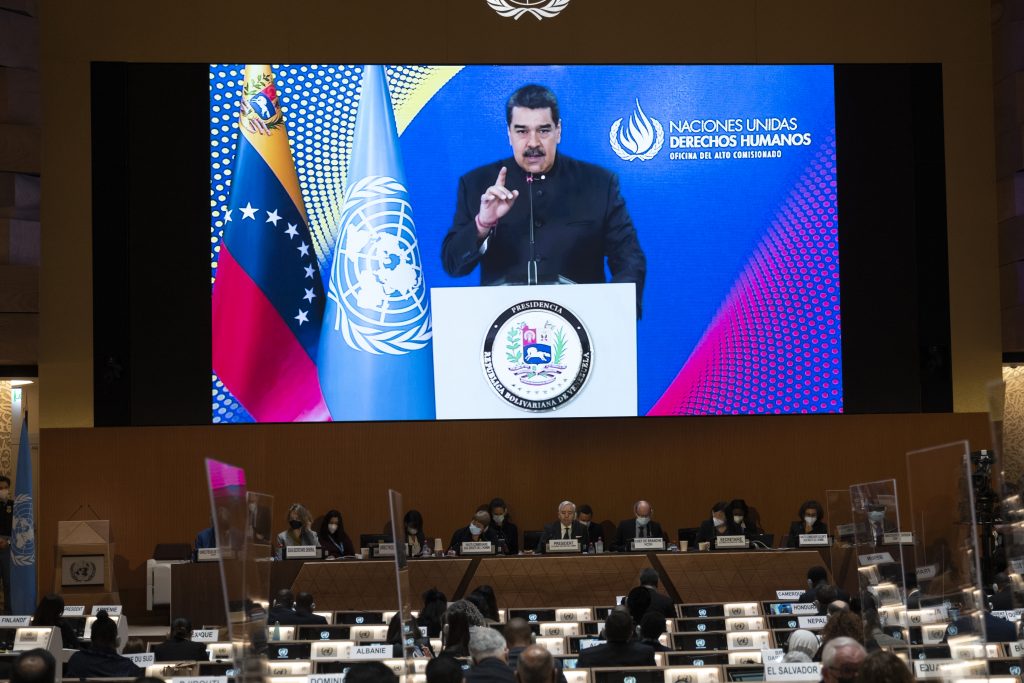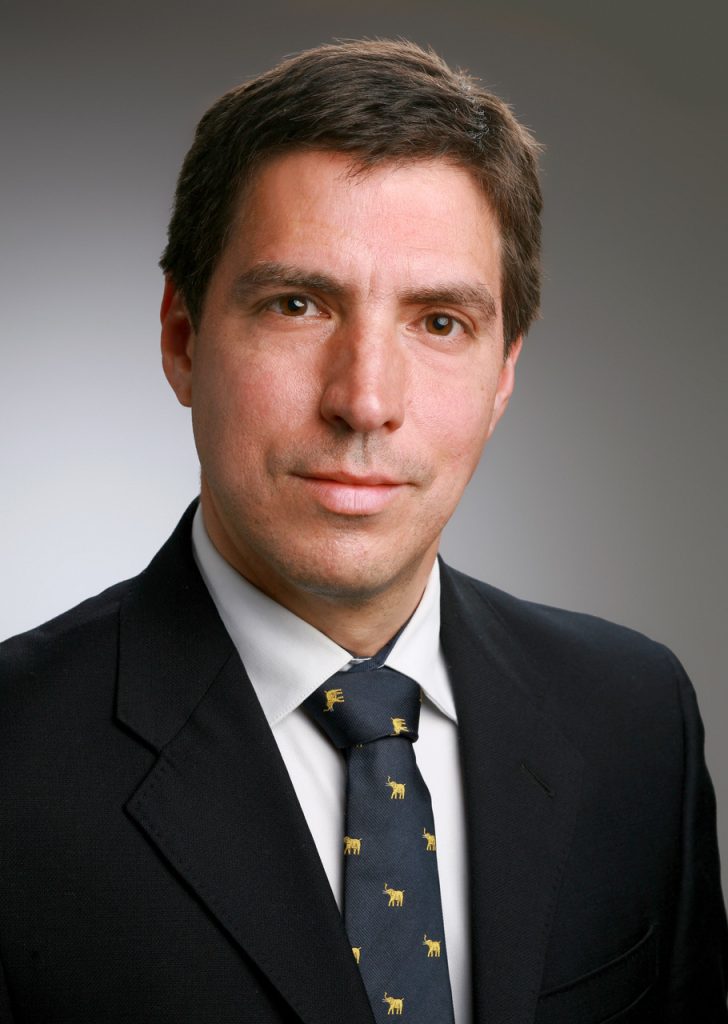Venezuela: Opposition Struggles to Reunite against President Maduro
Following last year’s removal of Juan Guaidó’s interim government, Venezuela’s authoritarian leader Nicolás Maduro was able to celebrate the anniversary of ten years in power in April unencumbered. But how is the opposition restructuring itself and what obstacles does Maduro face?
On January 23, 2019, after declaring the government of Nicolás Maduro illegitimate, Deputy Juan Guaidó, with the support of the opposition proclaimed himself interim president of Venezuela, presenting a three-step strategy for the country: 1. End of the Dictatorship; 2. Transitional government; and, 3. Free elections.
These changes, however, failed to materialize and four years later the opposition within the National Assembly withdrew its support for Juan Guaidó and his interim government, appointing a new director board chaired by three congresswomen in exile, who were charged with the task of protecting the nation’s assets abroad.
The fall of the opposition leader spelled the end of a political strategy that focused on ending the dictatorship rather than finding an immediate solution to the pressing economic and social problems afflicting the majority of Venezuelans.
At the end of the day, the interim government failed to end Nicolás Maduro’s government and also fell short of rupturing the Chavista elite – those still loyal to the doctrine of former leader Hugo Chávez. Ironically, the outcome was the complete opposite: Chavismo succeeded in dividing the opposition, after persecuting, threatening, imprisoning and even torturing its leaders and supporters, and fostering mutual distrust through the purchase of opposition leaders, the judicial intervention of opposition political parties and even encouraging the emergence of new opposition parties loyal to the Chavista political system.
Maduro’s decade in power
Thus, after ten years of Maduro’s rule, the opposition has fragmented into an archipelago of leaderships, interests and ideologies in which various groups can be identified, ranging from democratic opposition to an opposition loyal to the authoritarian regime. Prevalent fragmentation and mutual distrust hinder opponents from finding any consensus.
At present, the opposition is prioritizing the upcoming presidential (2024) and parliamentary (2025) elections. It has agreed to hold internal elections in October 2023 to select its new presidential candidate. However, the electoral route will be an uphill struggle, which entails restoring fair electoral conditions that have been systematically eroded amid Chavism. The Bertelsmann Transformation Index (BTI) 2022 country report on Venezuela highlighted deep-seated irregularities in the parliamentary election of December 2020, which it described as “irregular from the beginning to the end of the cycle, including aspects such as its schedule; regulation; the registration of voters, parties and candidates; observation; the voting itself; the vote count; the audit; and the proclamation of elected representatives”.
Likewise, the opposition also faces the hard task of reversing its own anti-election discourse: It previously urged the population to boycott the presidential elections held in 2018 and the parliamentary elections of 2020, a major challenge in a society in which 77 percent of people distrust the electoral management body (CNE), according to the 2020 Latinobarómetro survey.
Overall, the greatest challenge for the opposition is to rebuild a political consensus within its own diverse ranks, as well as boosting its credibility among a politically hopeless population, which is struggling to survive the complex humanitarian crisis.
Chavismo and corruption
But while the opposition struggles with internal challenges, Chavismo is also a heterogeneous group of actors seeking to retain power, avoid political change and distribute of the benefits of the Venezuelan’s oil earnings through corruption. The BTI report surmised the status quo as: “A petrostate in decay, the country is characterized by the amassing of political and economic power in the hands of an autocratic ruling elite, unfettered corruption, patronage networks, weak institutional arrangements and the brutal repression of dissent.”
At present, different parties, businessmen and, of course, the military, among others, coexist in tense harmony, as long as the economic benefits flow. A report by the Venezuelan chapter of Transparency International shows that illicit economies are estimated at US$9,444 million annually, representing just over a fifth of its GDP, making it the second most important sector after oil.
However, the easing of international pressure following the Russian invasion of Ukraine as well as the fragmentation of the opposition, have allowed Nicolás Maduro to begin a purge of his alliance, confiscating the assets of those targeted by his anti-corruption drive and attempting to boost his image by fighting corruption.
As part of his so-called special anti-corruption drive, at more than 61 people, including mayors and pro-Chávez deputies, were arrested in March. Additionally, it led to the resignation of his Minister of Petroleum, Tareck El Aissami, one of the most loyal and powerful hardliners of the regime.
This is the most important internal challenge to Chavismo during Maduro’s government, as it targets a minister in office and is part of a clean-up campaign promoted directly by the president himself.
Meanwhile, Maduro has stated that he will request special powers from Parliament to continue his offensive, less than two years before the presidential election.
There is no doubt that the fragmentation of the opposition has helped consolidate Nicolás Maduro’s regime. The fact that opposition parties and leaders spend more time and resources arguing with each other via the media and social networks, rather than challenging the authoritarian government, eases Maduro’s path to govern without major political challenges.
For example, the opposition’s lack of internal cohesion prevented the building of an electoral coalition during the regional and local elections of November 2021, facilitating the victory of Chavism in 16 Governorships and dozens of Municipalities. The opposition vote actually surpassed that of the governing party (PSUV –Partido Socialista Unido de Venezuela– and its allies) but ended up being shared among the different opposition candidates and parties.
That said, the end of the interim government led by Juan Guaidó provides scope to construct a new, more solid opposition coalition. To achieve this, it must rebuild its trust with the Venezuelan people by listening to their needs and becoming a true messenger of their demands. Likewise, rebuilding people’s trust will require offering the country a political strategy which reaches out to all sectors of society, including the numerous followers of Chavismo as well as including a wide range of civil society organizations, unions, and others – in short, incorporating all of Venezuela’s social capital.
Such an alliance, meanwhile, will require foreign support and the international community will need to offer technical assistance and electoral observation through organizations such as the United Nations and the European Union, as was the case in the 2021 elections.
In short, holding internal elections to select the opposition candidate for the 2024 presidential elections is a good start for the opposition, though on its own will not be enough. After all, its success in perusing the electoral route will ultimately hinge on its capacity to reconnect with voters and to mobilize popular dissatisfaction and desperation.
A version of this article was first published by The Global Americans

